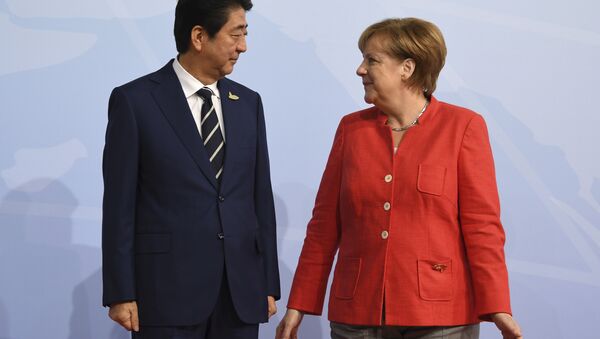Sputnik: How much money are we talking about? How much is this deal worth? Do you have any estimates?
Shino Takayama: This is about 28 percent of the global GDP, which of course is big. Dairy products to Japan from Europe – of course you made a good point that dairy products need to be fresh. So, basically, distance matters to Japan. So, I don’t think there is much impact on the Japanese market, and also as far as I understand South Korean car industries already have access to the European market at a lower tariff rate. I’m not sure how big this automobile company’s impact against the European market is. I don’t think it’s quite large. That’s my assessment.
Sputnik: The UK is in the process of leaving the EU. How do you think this deal is likely to affect British businesses post-Brexit? Do you think the UK will sign a separate deal with Japan when it leaves the EU?
Shino Takayama: I think so. There have to be negotiations between Japan and the UK.
Sputnik: How do you think closer ties between Brussels and Tokyo will impact US businesses operating on the Japanese market? You said it wouldn’t be a big difference, since it’s more of a political message. How would this affect American business?
Shino Takayama: In export sense, I don’t think there’s not that much impact for the American automobile companies. I don’t think the impact is large.
Sputnik: When the Trans-Pacific partnership was turned down by the US, they still show interest in reaching a separate trade deal with Japan. How likely is that deal right now?
Shino Takayama: I think there would be a negotiation between Japan and the US on the trade deal, and how this agreement between Japan and the EU affected the trade relationship between Japan and the US is basically hard. … The US is basically doing the same it did before, but I do think that this trade deal with the EU could bring Japan to a better position to negotiate with the United States, because Japan has access to cheaper products from the EU, and for Japanese producers a larger market is now open, through the EU. And through Japan they can get access to cheaper products, like materials from South East Asia. So I think this deal would bring Japan to a better position to negotiate with the US in terms of the trade agreement.
Sputnik: Actually there was national and regional legislation that almost derailed the trade deal with Canada before. How likely is it to reoccur with the Japanese agreement now?
Shino Takayama: I don’t think so. I mean the current agreement between Japan and the EU is basically trying to build their own rules and standards. That’s what they agreed on. There’s going to be an attempt. I think the speed of the agreement to get it finalized is quite amazing to me. These things usually take a long time. I think there is some kind of political pressure that they don’t want to do it.
The views and opinions expressed by Shino Takayama are those of the expert and do not necessarily reflect Sputnik's position.
READ MORE: Japan's Defense Ministry Seeks Extra $6.4Mln for Aegis Ashore Systems Deployment



